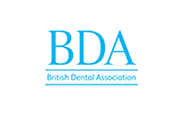Periodontics is a dental specialty that involves the prevention, diagnosis and treatment of diseases of the supporting and surrounding tissues of the teeth (like your gums) and the maintenance of the health, function and aesthetics of these structures and tissues.
Periodontal diseases range from simple gum inflammation to serious disease that results in major damage to the soft tissue and bone that support the teeth. In the worst cases, teeth are lost.
Whilst periodontal (gum) disease is an obvious threat to your oral health, research is also pointing to possible health effects of periodontal diseases that go well beyond your mouth - including heart disease.
Let the Academy of Periodontology explain in the video below...



I would like to say a very big thank you for the great job that you have done Monica. You are not only a fantastic dentist but a wonderful human being who cares about people.
Our mouths are full of bacteria. This bacteria, along with mucus and other particles, constantly form a sticky, colourless "plaque" on teeth. Brushing and flossing help get rid of plaque. Plaque that is not removed can harden and form bacteria-harbouring "tartar" that brushing doesn't clean. Only a professional cleaning by a dentist or dental hygienist can remove tartar.
Gingivitis
The longer plaque and tartar are on teeth, the more harmful they become. The bacteria cause inflammation of the gums that is called "gingivitis." In gingivitis, the gums become red, swollen and can bleed easily. Gingivitis is a mild form of gum disease that can usually be reversed with daily brushing and flossing, and regular cleaning by a dentist or dental hygienist. This form of gum disease does not include any loss of bone and tissue that hold teeth in place.
Periodontitis
When gingivitis is not treated, it can advance to "periodontitis" (which means "inflammation around the tooth.") In periodontitis, gums pull away from the teeth and form "pockets" that are infected. The body's immune system fights the bacteria as the plaque spreads and grows below the gum line. Bacterial toxins and the body's enzymes fighting the infection actually start to break down the bone and connective tissue that hold teeth in place. If not treated, the bones, gums, and connective tissue that support the teeth are destroyed. The teeth may eventually become loose and have to be removed.
Symptoms are often not noticeable until the disease is advanced. They include:
Any of these symptoms may signal a serious problem, which should be checked by a dentist. At your dental visit:
If you would like to join our friendly, caring and professional dental practice that is dedicated to helping its valued patients to smile with confidence, please click below to get in touch with us today...





